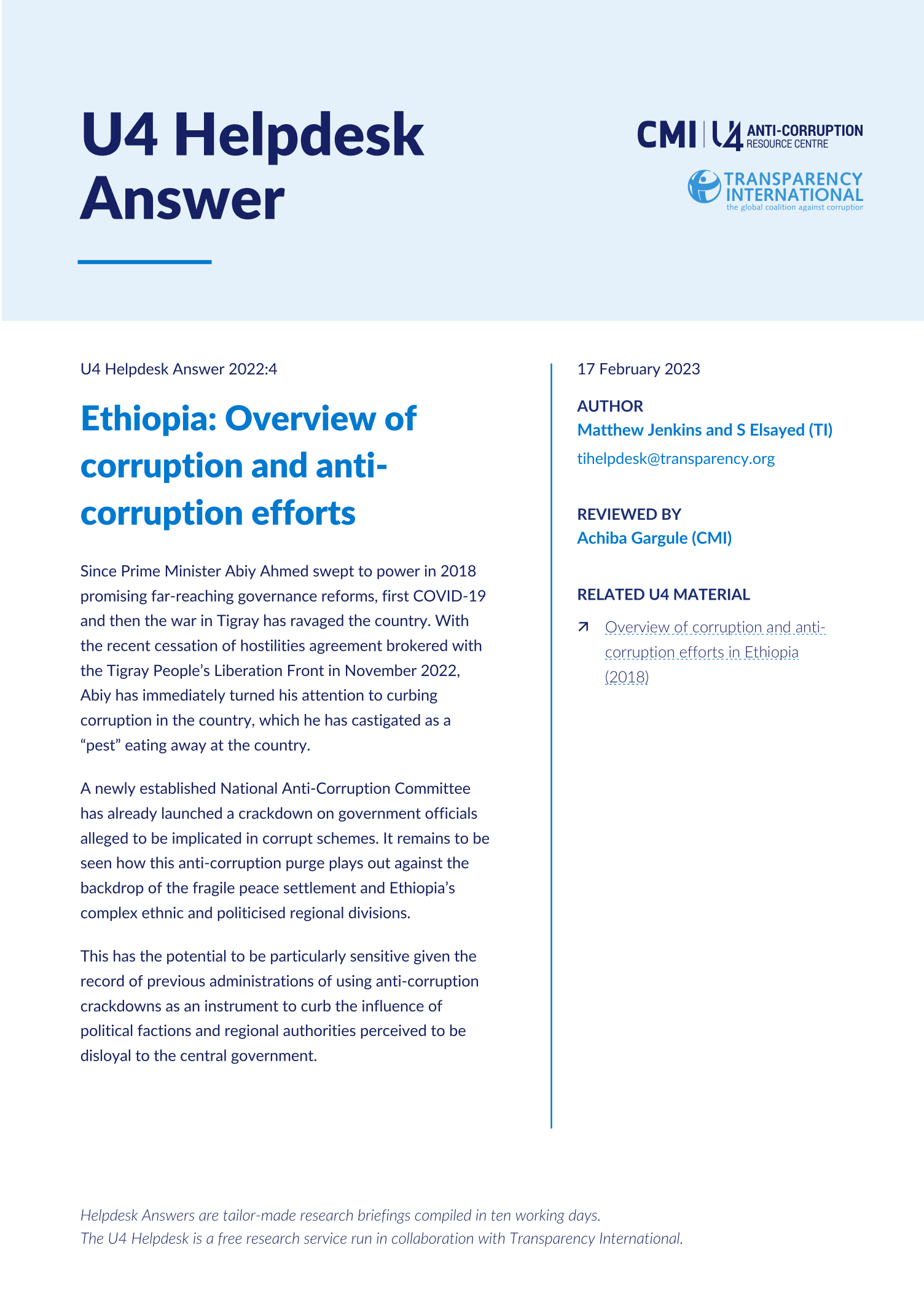Main points
- Ethiopia is at a crossroads, emerging from a terrible internecine conflict in the north of the country, it faces huge challenges such as climate-related food insecurity, slowing economic growth, ongoing ethnic tensions and widespread corruption.
- While according to some international governance indices, Ethiopia’s political regime has made some small steps towards democratisation since Abiy took power, his efforts to transform the country from a decentralised ethnic federal system to a more centralised national republic have not gone unchallenged.
- Abiy has placed great emphasis on anti-corruption as being a core policy priority. In a recent speech to parliament, he castigated many of country’s institutions as being riddled by corruption, including the judiciary, law enforcement and state auditors.
- Apparently in an effort to curb high-level corruption, the new National Anti-Corruption Committee has been established at ministerial level, with sweeping powers. However, its remit vis-à-vis existing anti-corruption bodies remains unclear, and there are concerns it may be used to target political opponents.


